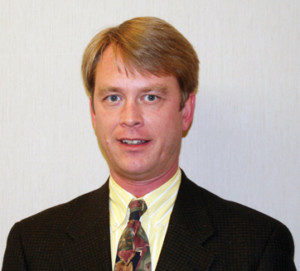
Bill Schofield
NETA Corporate Alliance Partners (CAPs) are industry-leading companies that have joined forces with NETA to work together toward a common goal: improving quality, safety, and electrical system reliability. The new NETA World spotlight series looks at what makes CAPs special and highlights some of their successes.
This issue features an interview with Bill Schofield, President of Advanced Electrical and Motor Controls, Inc. and Vice President of Group CBS. Group CBS provides electrical solutions to industrial, utility, electrical distribution, and repair markets worldwide.
NWJ: What is something we don’t know about Group CBS?
Schofield: Today, people may assume we only sell circuit breakers, but we do a whole lot more. People might not know we’re as technology driven as we are. Part of that might be because we are a little bit of a confusing group. We’re really five or six different corporations owned by a core group of business people. The beauty of Group CBS — because we are these five or six different entities all with different strengths — is that we can offer more effective equipment, service, or testing solutions than our competitors because they don’t have our full range of electrical equipment and engineering capabilities.
NWJ: What recent company achievement or milestone are you particularly proud of?
Schofield: One recent development is our new high-voltage laboratory for the purpose of evaluating the design, configuration, and materials of an electrical system for suitability, reliability, performance, and safety. We realized that electrical companies, such as Group CBS, that develop innovative electrical solutions, service electrical gear, and/or regularly extend the life of switchgear through retrofit, retrofil, and similar modifications needed a cost-effective way to test their designs without waiting weeks or months and paying a hefty price. As a result, smaller electrical design houses have been at a significant disadvantage to their larger competitors, utilities, and similar operations with big testing budgets. Now, thanks to Group CBS’s new HVLAB, the industry can benefit from our engineering experience when it comes to high-voltage testing. Our engineers have tested many different types of high-voltage equipment developed both in-house and by our HVLAB customers, including circuit breakers, transformers, insulators, cables, and motors. We regularly test our newest products to ensure they conform to design specifications as well as national and international standards; existing equipment conditions can be re-evaluated after modifications; and failed equipment can be analyzed to find a root cause. We strongly recommend that other electrical service companies and product engineers do the same to make our industry stronger and safer.
Another interesting development is in response to the active hurricane seasons we’ve seen in recent years. During natural disasters, we can respond to NETA members like no other supplier. For example, due to our size and the number of nationwide service locations, we can mobilize as a group to provide equipment services and remote support for NETA field service companies where they put boots on the ground. Because we have offices across the country, we’re able to focus our services where they are most needed. For example, our Houston office wasn’t a big help during Hurricane Harvey because our own homes and facilities were flooded, but we were able to deploy from Dallas and solve that manpower problem ourselves. We worked three shifts for two or three months to get people back online — and we were proud to do it.
The peril in emergency response lies in this question: Do we replace with new or used? After a catastrophic event, companies in the area are fully funded, but face the difficult question of what equipment to install. Companies sometimes don’t want to replace old equipment with new equipment; they still have other plants with the same electrical distribution technology, and their maintenance personnel know how to operate and maintain that equipment. Plus there are all the upstream and downstream electrical considerations that can add additional costs if replacing damaged gear with an incompatible replacement. In these cases, there is often more utility value in providing equipment similar to what was damaged instead of new equipment.
NWJ: What evolution do you see on the horizon that will have a positive impact on your work?
Schofield: As a group, we are heavy into research and development — innovative solutions that will reshape how the United States maintains its electrical grid. For example, we are working on a process to recondition vacuum interrupters. The procedure and technology would mean that instead of immediately replacing it, you could recondition it and get another five to 10 years of life. That’s big savings.
NWJ: What challenges do you see going forward for the industry?
Schofield: Finding quality people is a challenge. Everyone wants to be a derivatives trader or a doctor. There aren’t many people studying to go into a technical field like ours, so workforce is a major issue. As an employer, if you hire someone today, you usually will not see return on your investment for a couple of years, when they have learned to think and be safe on their own. From an investment standpoint, keeping people is a necessity, but it is also a challenge.
As we push forward in technology, we need to be smarter about the technology we use in our power distribution systems. People want apps for things and buzz-whizzers that really don’t tell us anything. For example, everyone wants an amp meter on their breaker. And then they shut it behind a gray door so you can’t read it. If you can’t read it, it doesn’t do you any good. And you don’t want to have to open the door to read it — that’s dangerous. However, technological advances related to asset management are useful. When equipment tells us, “Hey. I’m moving slow now,” or “I’ve got corona discharge,” that will make our electrical industry safer and more reliable for everyone. I tell my people all the time, “You either evolve or you decay. If you’re standing still, not changing, that’s decay.”